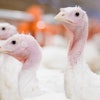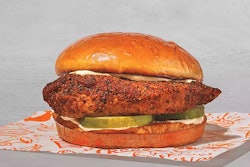
The new Nanyang Technical University Singapore (NTU Singapore) poultry processing plant repurposes waste byproducts into sustainable packaging alternatives and nutrients for cultivated meat products.
The facility is the first zero waste poultry processing plant in Singapore. It is the result of a research collaboration agreement between Nanyang Technical University, Singapore and poultry producer Leong Hup Singapore that was signed in March 2022.
“Being one of Singapore and Malaysia’s main poultry suppliers, it's important to future-proof the company's practices, while also raising our sustainability profile. By tapping on NTU's rich research expertise, especially with the scientists from the University’s Food Science and Technology Programme, it has great potential to also impact the poultry industry in Southeast Asia and beyond,” said Lau Joo Hwa, CEO of Leong Hup Singapore.
Egg trays made with feathers
Commonly considered a waste product of poultry processing, more than two billions feathers are produced each year.
The zero-waste poultry processing facility uses the keratin from chicken feathers to produce egg trays, providing a greener alternative to packaging made of synthetic polymers.
To create the egg trays, feather fibers were dried at room temperature for four days and then mixed with an unsaturated polyester resin. In lab tests, the tray withstood nearly two times the amount of force compared to conventional plastic trays.
“The project has clearly demonstrated that feathers can no longer be viewed as a waste product,” William Chen, Director of NTU’s Food Science and Technology Programme, said. “The utilization of chicken feather fibers in composite materials is a new source of materials that can be economic, eco-friendly and recyclable.”
Recycling byproducts into a cultivated meat growth medium
The facility also devised an approach to convert biological waste, such as blood and bones, into a growth medium for cultivated meat.
“Our collaboration with Leong Hup Singapore sees us applying innovations developed by NTU’s Food Science and Technology Programme to address that problem, bringing down the price for the medium, while repurposing materials that would otherwise have been discarded,” Chen added.
The high costs associated with cultivated meat production remain a big barrier to commercialization for lab-grown meat.


















